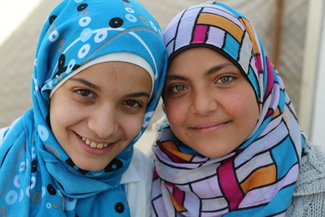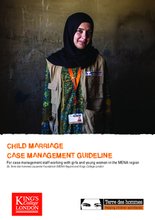

Displaying 31 - 40 of 244
Thirteen-year-old Palestinian Hadeel Madi has many dreams, she said, and worked hard at school so she could study abroad. But after eight months of war in Gaza it is basic challenges like finding water that occupy her mind.
Israel’s forced starvation has caused the deaths of two more children in central Gaza where conditions have been made worse by Israel’s closure of the Rafah crossing, further limiting aid and trapping sick and injured Palestinians.
Hostilities in southern Lebanon have intensified as a result of the cross-border war between Israel and Gaza. More than 93,000 people have been forced to leave their homes and most children can no longer attend school. The children report severe psychological stress and nightmares, according to the leading Swiss children's rights organisation Terre des hommes Lausanne, which has been providing assistance on the ground for 47 years.
As an Israeli ground assault on Gaza’s last ‘safe zone’ looms, two children in Rafah brace for it.
As Israel's war against Hamas continues, children in Gaza are suffering. According to the United Nations, more than 25,000 children have been killed or injured since October. That's one child every ten minutes. We hear about one of those children, a twelve year-old boy injured in Gaza.
The United Nations says famine is likely to set in by May. For those living under Israel’s attacks and a crippling blockade, every day is a race against time.
This guidance aims to tailor existing case management standards and guidance to include specific elements that are relevant to child marriage cases; using the voices of Syrian refugee girls from the Terre des hommes-Lausanne Foundation (Tdh) and King’s College London (KCL) research in Lebanon and Jordan to support Child Protection and Gender-Based Violence case management staff in their case management work on the issue of child marriage.
The present qualitative study seeks to understand parents' perceptions of home or institutional care for children with disabilities. The study utilized an exploratory qualitative approach paradigm with five focus groups in the Qassim region of Saudi Arabia.
The UN's top court has ordered Israel to enable the unhindered flow of aid into Gaza in order to avert a famine.
An aid official who travelled the length of Gaza this week has described scenes of “utter annihilation”, with “nothing left” of what were once thriving and crowded cities in the territory. “The depth of the horror surpasses our ability to describe it,” said James Elder, a spokesperson with the United Nations Children’s Fund (UNICEF).


